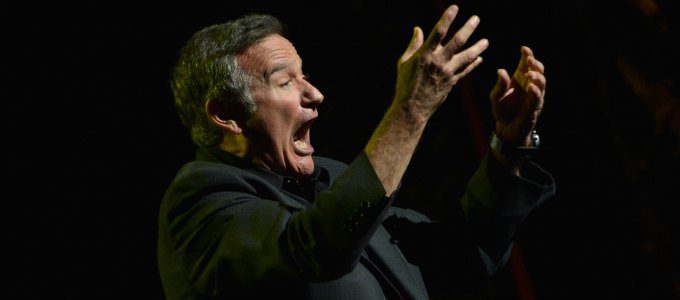On Monday, the world lost one of its greatest comedians, and the mentoring profession lost the man behind two of its greatest cinematic representations.
Robin Williams’ death came as a tragic shock to everyone he made laugh, cry or laugh so hard they cried — a group that could include everyone on Earth. He was more than a comedian because of the projects he chose to take on, most notably as inspirational mentors in “Dead Poets Society” and “Good Will Hunting.”
Although a lot of the credit for those two roles sits on the shoulders of the screenwriters, Williams embodied the characters. His portrayal of English teacher John Keating in “Dead Poets Society” and psychologist Sean Maguire in “Good Will Hunting” embodied the paragon that real-world mentors should aspire to be by demonstrating the best qualities for leading others.
Mentors make it about their mentees, not themselves. Becoming a mentor can be a slippery slope into egomania. A successful CEO can easily make a mentorship more about “look what I did” rather than “look what you can do.” Obviously, that’s not the right path if you’re looking to inspire someone to succeed on their own. The relationship is more about learning about them than it is expounding about you.
Williams’ character in “Good Will Hunting” shows interest in his patient and mentee. Throughout the film, troubled genius Will tries to get under Sean’s skin by picking away at tragedies in his past, such as the death of his wife. But Sean keeps bringing it back to Will’s own tragedies and flaws, as well as how those can help unlock his potential.
Similarly, business leaders should push their potential successors to see past their current job descriptions when seeking development. They have to remember that no one can follow the exact path they took to get to where they are — in Sean’s case, going from being a bricklayer’s son to being a successful psychologist. Great mentors see differences in perspective and use them to help mentees thrive.
Mentors encourage others to think for themselves. In “Dead Poets Society,” Keating’s unorthodox teaching methods draw scorn from the rest of the faculty at Welton Academy. "You are taking a big risk in making your students think they are artists,” says one of the teachers. Keating replies, "I'm only trying to make them free thinkers.”
Pushing others to think for themselves makes it possible for them to stand on their own long after a mentorship ends. Keating doesn’t require his students to think or act like him — apart from rekindling the subversive poetry club he started while a Welton student — but rather encourages them to find their own voice.
In the business world, this translates to making sure that your mentees aren’t carbon copies. With a changing economy and workforce, past practices become dated quickly. Mentors need to acknowledge that the way things were when they were growing as professionals are different than they are now, therefore their students must think independently.
Mentors focus on the future and the present. Here’s where Keating and Sean part ways. In “Dead Poets Society,” one of the most famous scenes is Keating’s push for his students to understand the sentiment behind “carpe diem.” He wants them to live as nonconformists starting that day, focused on getting the most out of life at every moment.
Sean, however, pushes Will to see into the future. “What do you want to do?” he asks, trying to get the prodigy to recognize his potential as a mathematical genius. Their relationship is based on Sean’s attempt to push him toward what will make him happiest, whether that’s a top position with the government or “seeing about a girl” in California.
The dichotomy between the two approaches makes sense. Professional mentors have to push their mentees to see beyond their current status by focusing on the present. From a learning point of view, developing the skills needed for the future requires getting the most out of the present.
Mentors are supposed to be imperfect. Part of what endeared Williams to audiences in both films was his humanity. Neither Keating nor Sean is perfect; each deals with his own demons. They don’t have to be flawless — in fact, they shouldn’t be. Recognizing those imperfections and how to thrive despite them is key to be a strong mentor because it sets an example for the people they lead.
It also gives mentees hope they will be mentors to someone else one day. In “Dead Poets Society,” Keating teaches Walt Whitman’s “You are here, that life exists and identity. That the powerful play goes on and you may contribute a verse.” If that’s true, Williams contributed whole sagas through his career.
What about you? As a mentor, what will your verse be?















